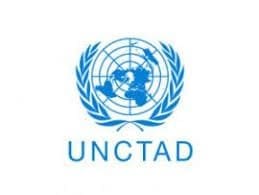Production is set for significant transformation in the decade ahead as the COVID-19 pandemic amplifies challenges, according to World Investment Report 2020 released recently by the United Nations Conference on Trade and Development (UNCTAD). Three key technology trends will shape global production: robotics-enabled automation, enhanced supply chain digitalisation and additive manufacturing, it said.
Existing trends deriving from the challenges of growing economic nationalism, the new industrial revolution and the sustainability imperative were already steadily brewing towards an inflection point and the outbreak of the pandemic looks set to tip the scales further, the report said.
“The major transformation underway in international production will profoundly impact developing countries over the coming decade. This may call for major policy rethink.,” said UNCTAD secretary-general Mukhisa Kituyi.
The pace and extent of new technological adoption will partly depend on the policy environment for trade and investment, which is trending towards more interventionism, rising protectionism and a shift to regional and bilateral frameworks.
They will also depend on sustainability concerns, including differences between countries and regions on emission targets and environmental, social and governance (ESG) standards, market-driven changes in products and processes, and supply chain resilience measures.
The effects on international production from the technology, policy and sustainability trends are multi-faceted, and will play out differently across industries and regions, landing in four possible trajectories: reshoring, diversification, regionalization, and replication.
The transformation of international production in the post-pandemic era will bring both challenges and opportunities for investment and development policymakers.
The main challenges in the new era of international production are likely to involve increased divestment, relocations, investment diversion and a shrinking pool of efficiency-seeking investment, implying tougher competition for foreign direct investment (FDI), says the report.
Changes in the locational determinants of investment will negatively affect developing countries’ ability to attract MNE operations. In contrast, new opportunities are likely to arise due to investors looking to diversify supply bases to enhance production resilience.
Recovery will depend on policymakers safeguarding a trade and investment policy environment favouring a gradual adjustment of international production networks.
Governments will face the challenge of dealing with adverse developments but at the same time have plenty opportunities to capitalize on emerging avenues, the report added.

